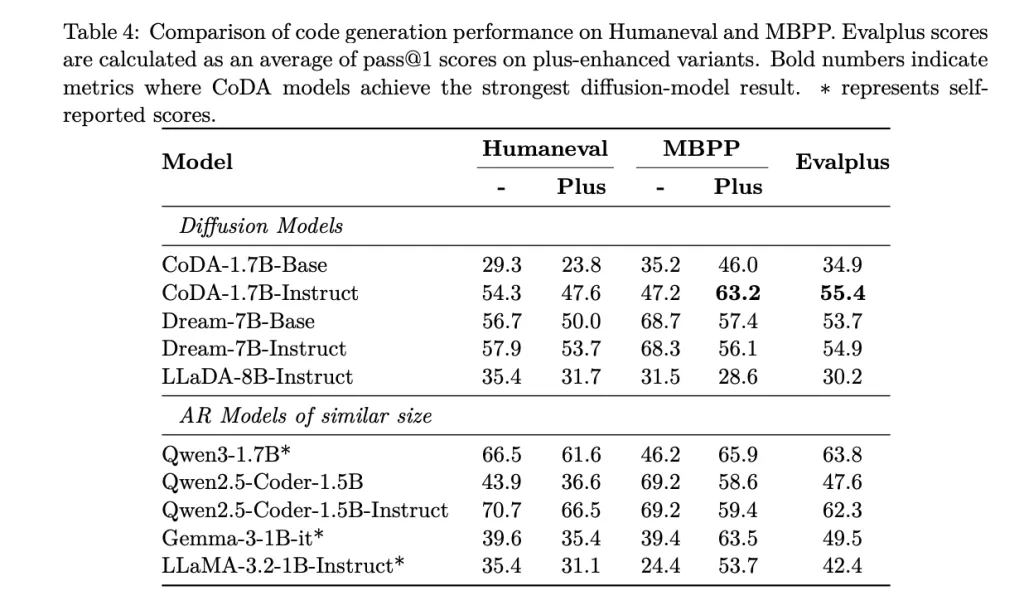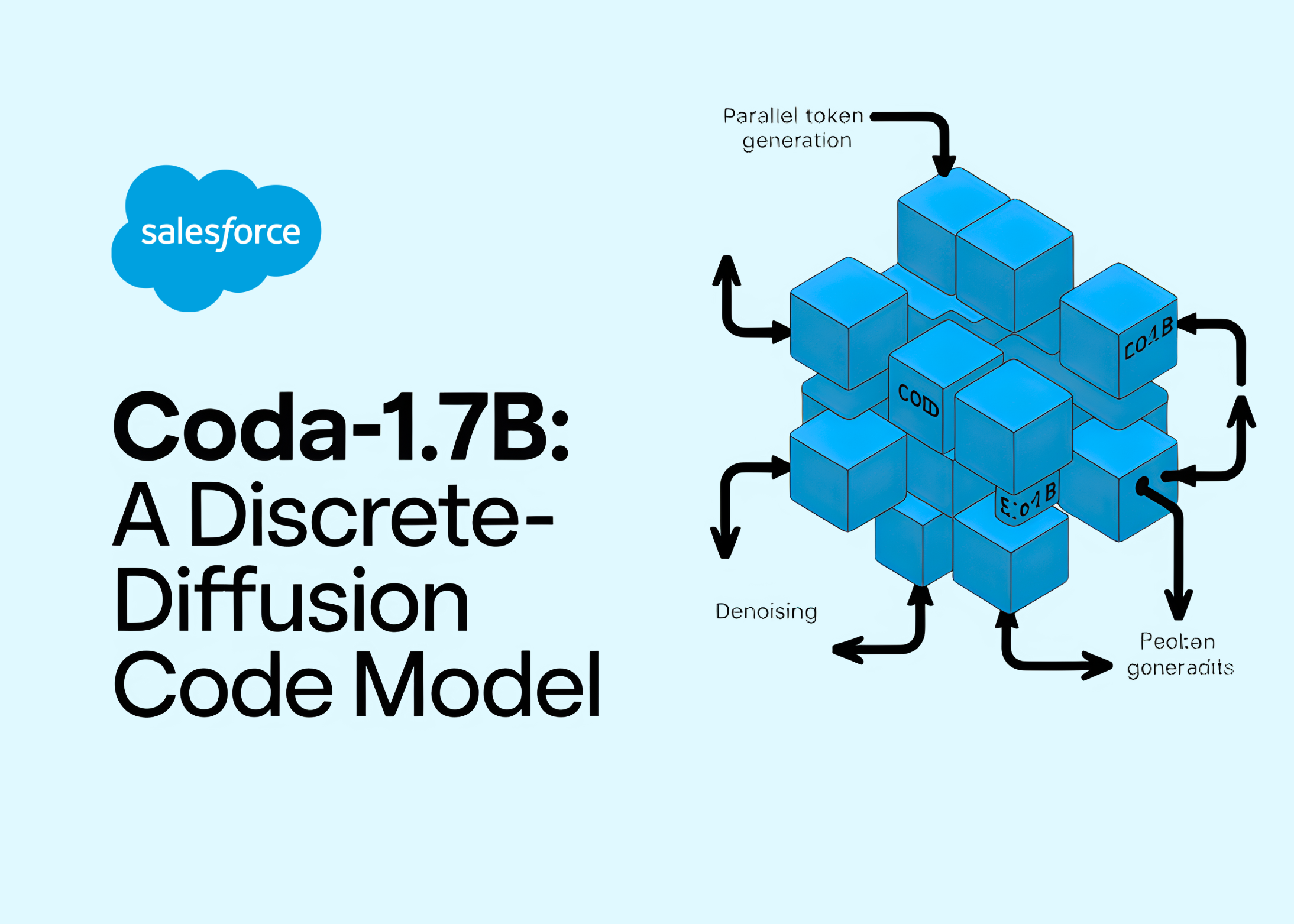Salesforce AI Research released CoDA-1.7B, a diffusion-based language model for code that generates by denoising whole sequences with bidirectional context, updating multiple tokens in parallel rather than left-to-right next-token prediction. The research team published both Base and Instruct checkpoints and an end-to-end training/evaluation/serving stack.
Understanding the architecture and training
CoDA adapts a 1.7B-parameter backbone to discrete diffusion for text: masked sequences are iteratively denoised using full-sequence attention, enabling native infilling and non-autoregressive decoding. The model card documents a three-stage pipeline (pre-training with bidirectional masking, supervised post-training, and progressive denoising at inference) plus reproducible scripts for TPU pre-training, GPU fine-tuning, and evaluation.
Key features surfaced in the release:
- Bidirectional context via diffusion denoising (no fixed generation order).
- Confidence-guided sampling (entropy-style decoding) to trade quality vs. speed.
- Open training pipeline with deploy scripts and CLI.
How do they perform on Benchmarks?
On standard code-gen suites, CoDA-1.7B-Instruct reports: HumanEval 54.3%, HumanEval+ 47.6%, MBPP 47.2%, MBPP+ 63.2%, EvalPlus aggregate 55.4% (pass@1). For context, the model card compares against diffusion baselines including Dream-7B-Instruct (57.9% HumanEval), indicating CoDA’s 1.7B footprint is competitive with some 7B diffusion models on several metrics while using fewer parameters.

Inference behavior
Generation cost is governed by the number of diffusion steps; CoDA exposes knobs such as STEPS, ALG="entropy", ALG_TEMP, and block length to tune latency/quality trade-offs. Because tokens are updated in parallel under full attention, CoDA targets lower wall-clock latency at small scale compared with larger diffusion models, at comparable step budgets. (Hugging Face)
Deployment and licensing
The repository provides a FastAPI server with OpenAI-compatible APIs and an interactive CLI for local inference; instructions include environment setup and a start_server.sh launcher. Model cards and a Hugging Face collection centralize artifacts. The checkpoints are published under CC BY-NC 4.0 on Hugging Face.
Our Comments
CoDA-1.7B stands as a clean reference for discrete-diffusion code generation at small scale: 1.7B parameters, bidirectional denoising with parallel token updates, and a reproducible pipeline from pre-training to SFT and serving. The reported pass@1 results—HumanEval 54.3, HumanEval+ 47.6, MBPP 47.2, MBPP+ 63.2, EvalPlus aggregate 55.4—place it competitive with some 7B diffusion baselines (e.g., Dream-7B HumanEval 57.9) while using fewer parameters. Inference latency is explicitly governed by step count and decoding knobs (STEPS, entropy-style guidance), which is operationally useful for tuning throughput/quality. The release includes weights on Hugging Face and a FastAPI server/CLI for local deployment.
Check out the Paper, GitHub Repo and Model on Hugging Face. Feel free to check out our GitHub Page for Tutorials, Codes and Notebooks. Also, feel free to follow us on Twitter and don’t forget to join our 100k+ ML SubReddit and Subscribe to our Newsletter. Wait! are you on telegram? now you can join us on telegram as well.
The post Salesforce AI Research Releases CoDA-1.7B: a Discrete-Diffusion Code Model with Bidirectional, Parallel Token Generation appeared first on MarkTechPost.




